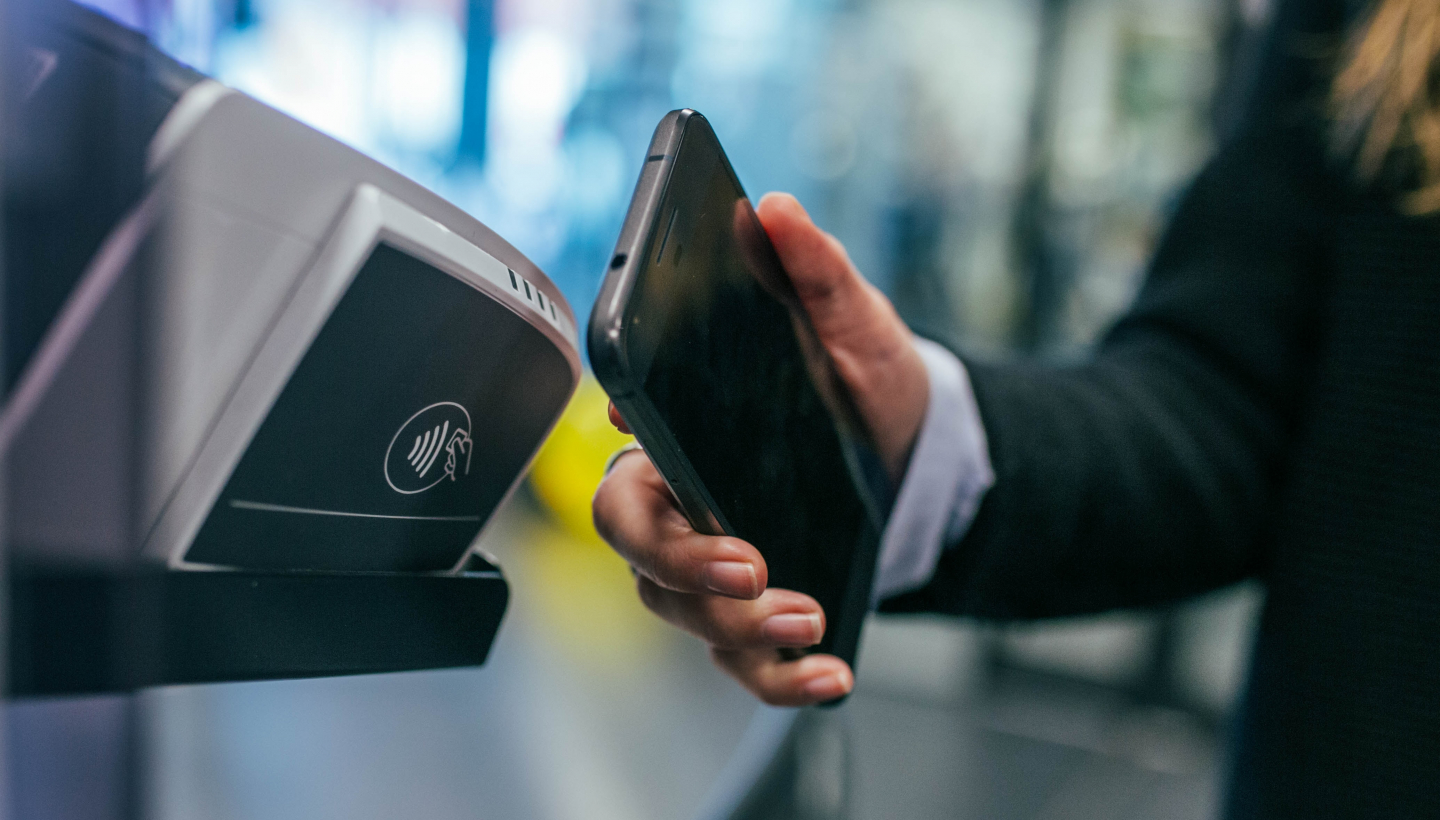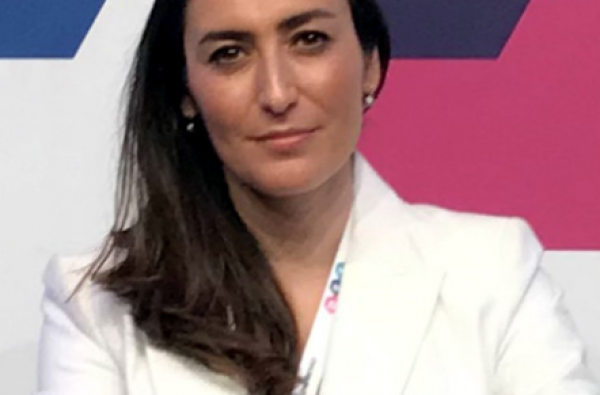The obsession of ING Spain's General Manager of Private Banking, Almudena Román, is to improve the customer experience. In order to do so, she bets on squeezing the data, looking for inspiration in the 'fintech' and making the entity agile and trying new things continuously.
The first thing ING Spain's general manager of Private Banking, Almudena Román, does every morning is read an email that helps her put herself in the shoes of her customers. This virtual letter informs her daily about the rating they give to their services, as well as gathering opinions on the successes and weaknesses they find.
"It is very powerful information, because having a good grade depends, in part, on whether you do something with it," says Roman showing the mail on his computer. The person in charge adds: "I can say that the bank is doing great, but those who have to feel it are them". Although she is at the top of the business ladder, staying close to customers and making the most of the data they provide are two of her main concerns.
The directive has been working in the entity since the Dutch bank arrived in Spain two decades ago with a differentiating bet: to dispense with branches and strengthen the online and telephone channel. After making a place for itself among the Spanish banking giants, it now faces the challenges of the future with a new internal structure that allows it to be more agile.
Every year MIT Technology Review publishes a list of 10 technologies that can change the world. In the 2018 list there is a technique to guarantee privacy in blockchain (chain of blocks). Is ING applying the technology in a way that is already benefiting customers?
We use blockchain in wholesale banking to validate operations with other countries. The more global the economy and the more need there is to do transactions between countries, the more sense blockchain makes. But, although it offers many opportunities, there are still certain challenges for massive use in retail banking.
Some cases of use have already been resolved, but not enough to meet the needs of society. Making sure that it works for all cases of use, which is versatile, is going to require a little more time.
The chain of blocks eliminates intermediaries, which can pose a threat to your sector. If blockchain becomes popular, will there still be a gap for banks?
It depends on the role that the rest of society gives to banking. But it will also depend on how the system advances and on our willingness to be part of the solution. All this redefinition of roles requires technological investments and deciding what role the banks will have, something that both citizens and governments must consent to.
Both blockchain and other technologies are allowing start-ups to enter the banking sector. At ING you are driving several fintech through ING Ventures, a 300 million euro investment fund. Do you see fintech as competitors or allies?
We see them as a source of inspiration. Fintech deserve admiration because, although they are born with very little legacy, they have all the creativity in the world to try to do it better than the others, which is how ING got into Spain. But having said that, inspiration is one thing and how companies use that learning to transform the way they work is another.
Being a digital bank since its birth, is ING a fintech in any way?
Banks do three things: give loans, pay and keep customers' money. I would tell you that we are a fintech, but to save the clients' money we need a banking license. The challenge is how the banks we need that license are able to operate with their agility in areas where we wouldn't have to have a banking license. We'll have to be dynamic enough to adapt and maybe we'll have to work with different licenses.
Why did you decide to do away almost entirely with physical offices?
When a person wakes up on a Saturday morning, he doesn't say, "What's the difference between what I'm opening today?" but, "Let's see who I'm going to eat with. No matter how hard we banks work and how many hours we work, we are not important [to people], we are a means to achieve things. So our first task is to reduce effort, that's why ING has it all here [pick up your smartphone].
We realized the customer is here, so whatever you can do on your smartphone you won't have to do elsewhere. Our customers go to the office once every three years because they need to look someone in the eye. But our job is to reduce that insecurity and efforts.
Massive data has also changed the bank's relationship with the customer. How are you taking advantage of this at ING?
Our other important line of work is to give perspective. Banks are not important at all, but the day you ask yourself: "Can I buy a house? Will I ever be able to buy a car?" That day, banks must give you all that perspective as comfortably as possible.
This perspective has traditionally been a red carpet service that cost a lot of money because before the digital era the scarce resource was the time of the people who served the customer in the office. Now, the scarce resource is the customer's time, because as consumers we are subject to thousands of impacts. The bank's job is to help you reduce effort: based on the information we have about you, how many things can we solve without you having to do anything?
Is your plan to keep accumulating customer information to offer better services?
What's easier for a customer? Saying that you like a photo or having to answer standard questions about how many debts you have or how many debts you pay per month? There is a lot of information [on the smartphone] that determines a lot of habits and mental schemes to understand if we are more talkative, if we are more consumers... All that has to evolve.

How does ING approach the rapid technological evolution?
We test continuously. In fact, the first of the characteristics that a 21st century company must have is [the ability to] test. There's a phrase I really like: "Don't have a strategy that defines execution, it's execution that defines strategy. If you have an idea, start carrying it out because it is in the interaction with your users and clients where you really learn which strategy to follow.
The world is going so fast that there is no time to be philosophizing, there is time to be testing. We have to be ready to confuse ourselves many times and to explain that the world is not perfect. We don't do everything right, so part of the learning goes through tolerance to error.
What actions have you taken to transform the entity into an organization that tolerates error and makes it easy for those who try to innovate?
Last year we did all the agile transformation. We believe more in the speed of a team that sets things in motion and makes mistakes than in the hierarchy of an organization that controls and approves everything. In recent years there have been several cases where we've done something and then decided not to go through with it.
Also, things don't succeed in five or six months, they have to have some time to mature. None of the big start-ups have triumphed in a month, it has taken years to go through a cycle of rapid iterations in which they have been fine-tuning this strategy through execution.
To what extent has the agile culture been implemented?
We have reached the stage where, for example, in the steering committee we are also working on agile. We are no longer sitting around an opinion board, we are now looking for ways of working that allow us to listen to everyone. All of the people on my steering committee are tribal leaders, and beneath them, there are no more hierarchies.
Why has ING decided to make its internal structure more horizontal?
There were a lot of people in the bank who were leaving because they told us, "I don't want to be anyone's boss, I like my job. The only way to retain that great expert is to create a discipline in which he can keep in touch with his work, but at the same time, he can help others learn.
There are many professions in the digital age where experience is more important than the triumph of hierarchy. That's why we've killed it. Everyone is on an equal footing to give feedback, which makes everything much more transparent.
What advice would you give to other CEOs to face the challenges of corporate culture change and digital transformation?
The need for change and transformation is given by the fact that consumers have much more power and companies control much less information going out. We cannot have a hierarchical line in which we are at the furthest point from the consumer, because the consumer is not going to perceive value from that. They will perceive value if those closest to them have more decision-making power.
You have to make sure you include the customer in all the strategic design processes, but you can't think that everything goes through you. My job is much more one of facilitation, of providing a more complete perspective of where we are all going and of coordination than of leadership.
If consumers are increasingly empowered, what should companies do to gain credibility?
Credibility does not come from not failing but from being sincere. We do many things in a way that can be improved, it is a place where we have a list of all-everything [pending tasks]. The challenge is how to fulfill what we promise, not to brag about anything until we have fulfilled it or promise things that can be fulfilled. That's credibility. If we make a mistake, [we must] recognize it and be transparent.
By Cristina Sánchez



